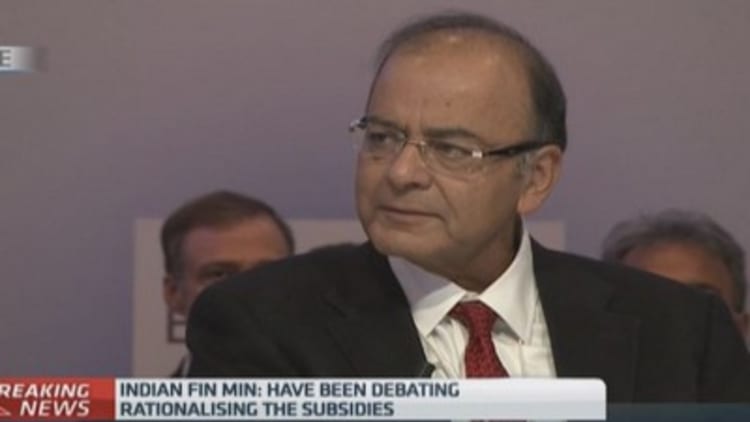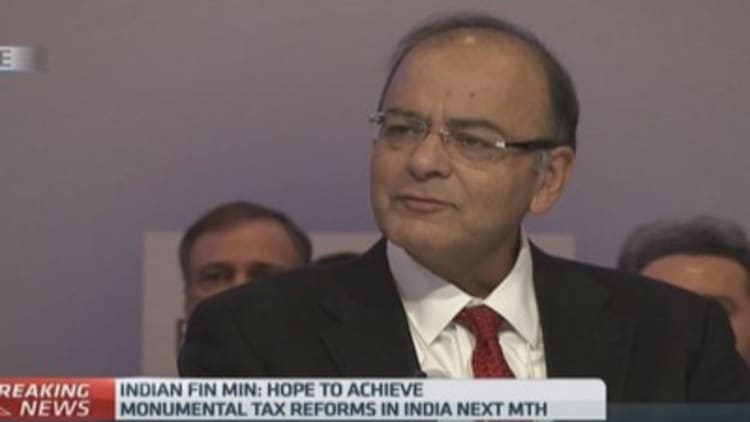
The next session of India's parliament is likely to see "monumental" tax reform while fuel subsidies may be cut, Indian Finance Minister Arun Jaitley said on Thursday.
Prime Minister Narendra Modi, who swept to power in elections last May, is under pressure to deliver economic reforms that would transform the outlook for Asia's third largest economy. That puts the spotlight on the budget, due to be unveiled next month.
"This government had a mandate to act fast and we are moving at a rapid pace in that direction," Jaitley told CNBC's Andrew Ross Sorkin at the World Economic Forum in Davos, Switzerland.
Read More Back to black: India on course for 2015 milestone
He added that big changes, such as the implementation of a harmonized goods and service tax (GST), were in the offing.
The introduction of a GST, held up for years by some of India's 29 states amid worries about a loss of business revenue, is seen as a potential game-changer by analysts. A harmonized GST is expected to simplify taxes and broaden the tax base, providing a powerful boost to an economy that has seen lackluster growth in recent years.
"We've had negotiations with the states, a constitutional amendment bill has been introduced in parliament and has been broadly welcomed, and in the coming session of parliament next month I hope to pass that bill," Jaitley said. "That's going to be one of the most monumental tax reforms in India since independence (in 1947)."
The International Monetary Fund on Tuesday forecast India's economy would grow 6.3 percent this year. It expects that number to climb to 6.5 percent in 2016, overtaking economic growth in China which is forecast at 6.3 percent.
Read More Hope is back in India: Wipro CEO
Subsidy cuts?
Jaitley said that the government would take more action to cut back on fuel and commodity subsidies in order to improve the country's fiscal position, stressing that subsidies would not be eliminated altogether.
"The elimination of subsidies in India, a country where a third of the people are still living in poverty conditions, is not possible, it's not even desirable," Jaitley told CNBC.

"The prime minister last week said subsidies for the poor will remain but will be rationalized. And that's the area we intend to move in, in order to cut down some part of the expenditure to finance our activities," he added.
Overseas investors have sometimes fought shy of India's asset markets thank to its twin deficits – current account and fiscal. Jaitley said the government has a fiscal deficit target of 4.1 percent and has a "road map" to get that number below 3 percent in the coming years.
Renewed confidence in India's economy, thanks to a recent cut in interest rates and hopes for reform, helped lift the country's benchmark stock index to a fresh record high on Thursday.
Follow us on Twitter: @CNBCWorld





